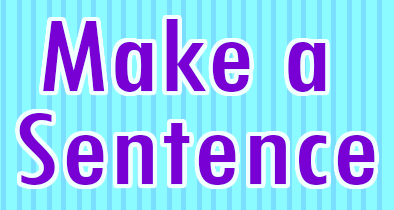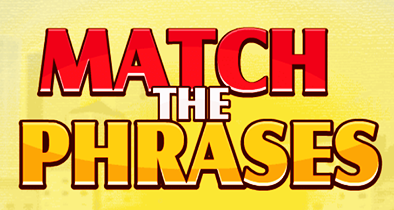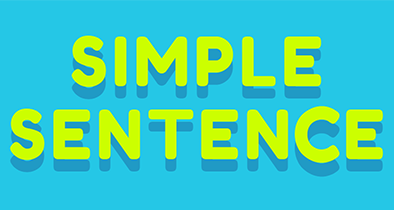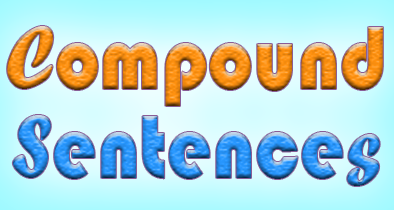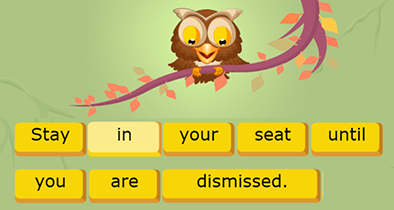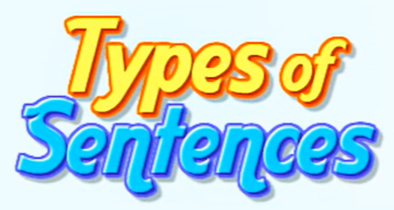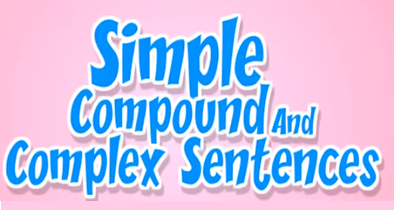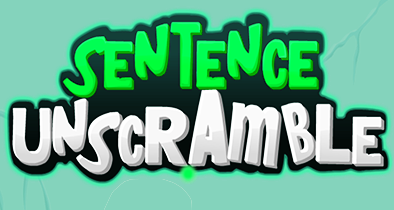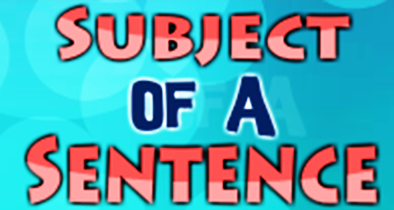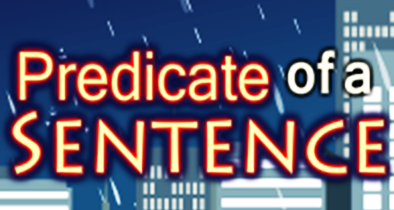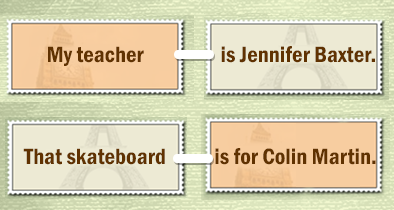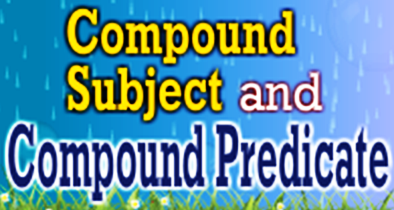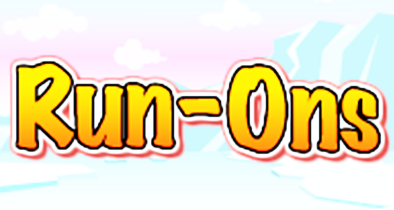Login as parent/teacher to assign this.
Sentence Games
A rib-tickling game for kids to have loads of fun making crazy sentences.
A wonderful game for kids to test and build their sentence-making skills.
A challenging game for Grade 2 students to test and build their sentence making skills.
A simple sentence is a group of words that contains at least one subject - a noun - and one verb that have four different functions - a statement, a question, an exclamation, or a command. A sentence gives you information about the subject using the verb - either action or linking - to add more information. They're usually followed by an adjective or a direct object in order to complete the idea with more detailed information.
Compound sentences join two ideas together. They join two or more independent clauses together. (Remember that an independent clause MUST hav4e a subject and a verb.). Compound sentences can have the same four functions as a simple sentence, but they are usually used to give more information about a subject or to describe a situation or thing in more detail.
Complex sentences contain two types of clauses: dependent and independent. They must have one independent clause and one or more dependent clauses. To join the clauses, we use subordinating conjunctions and/or relative pronouns AND a comma to divide them.
We use the four basic types of sentences in our writing to convey different tones. Declarative sentences form a statement. Interrogative sentences form a question. Imperative sentences make a command or a polite request. Exclamatory sentences show powerful feelings.
Simple sentence consists of a single independent clause. It has a subject and a verb, and expresses a single complete thought. Remember, it does not contain a dependent clause or another simple sentence. A compound sentence is made from two independent clauses, which are short sentences, that are combined with a conjunction (and). In a compound sentence, each clause, or each part, before and after the conjunction, would make sense on its own. A sentence that combines two clauses and uses a subordinating conjunction is called a complex sentence.
You have to make really mad sentences here. There are five columns using which you have to make complete sentences. Click on any one image under each column moving from left to right. Read your mad sentence. Laugh heartily!
The subject is the person or thing (object) that the sentence is about. This person or thing is doing something in the sentence. To figure out who or what is the subject, first find the verb of the sentence. Then ask yourself who or what is doing that action. Sometimes, there is no subject like in the case of the imperative sentence, it is when someone gives a command or an order. In these sentences, you don't see a subject. But the subject is "you." It does not need to be said; it is understood.
A predicate is what is being said about the subject in a sentence. In other words, it describes what is happening. A predicate is a verb with several other words. Sometimes, the predicate can be only a verb. To figure out what the predicate is, first identify the subject of the sentence. Then, look at the rest of the sentence to see what the subject is doing.
A simple subject is a subject that has just one noun or pronoun as the focus of the sentence. This means that only one noun or pronoun does the action, or connects, to the verb of the sentence. The simple predicate is the verbs or verbs that are connected to the subject.
Sometimes a subject may be more than one thing or person. They have more than one noun or pronoun and are called compound subjects. Sometimes one subject may be doing more than one thing. There may be more than one verb and these are called compound predicates.
A fragment is only a piece of a complete thought that has been punctuated like a sentence. If a sentence is missing either a subject or a verb, it is considered a fragment.
A run-on is when two sentences are "combined," or "run together" without the necessary connecting words or punctuation (or both of these!). If two sentences are written together without any punctuation at all, this is a fused sentence.

Our Educational Resources
Math Games
- Addition
- Area and Perimeter
- Decimals
- Division
- Fractions
- Shapes
- Geometry
- Multiplication
- Number
- Roman Numerals
- Statistics
- Subtraction
- Time
- Units of Measurement


